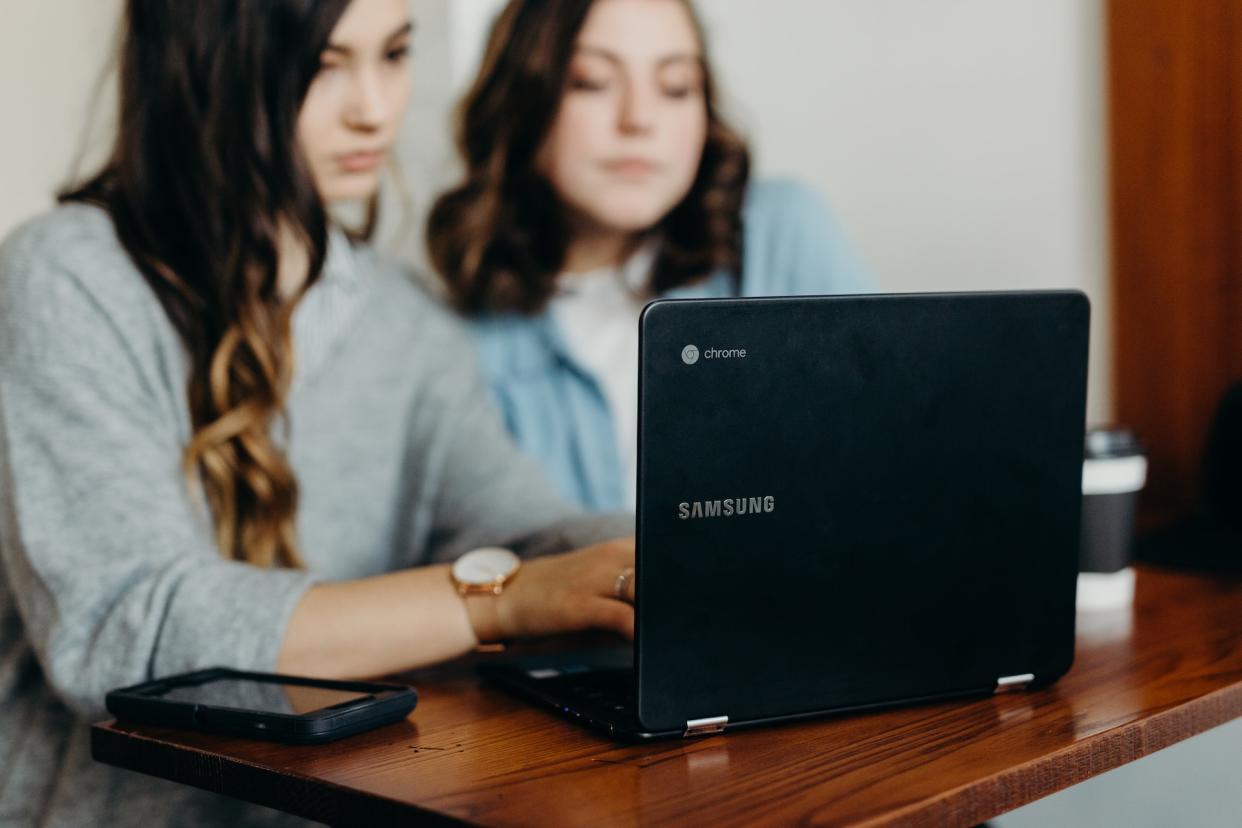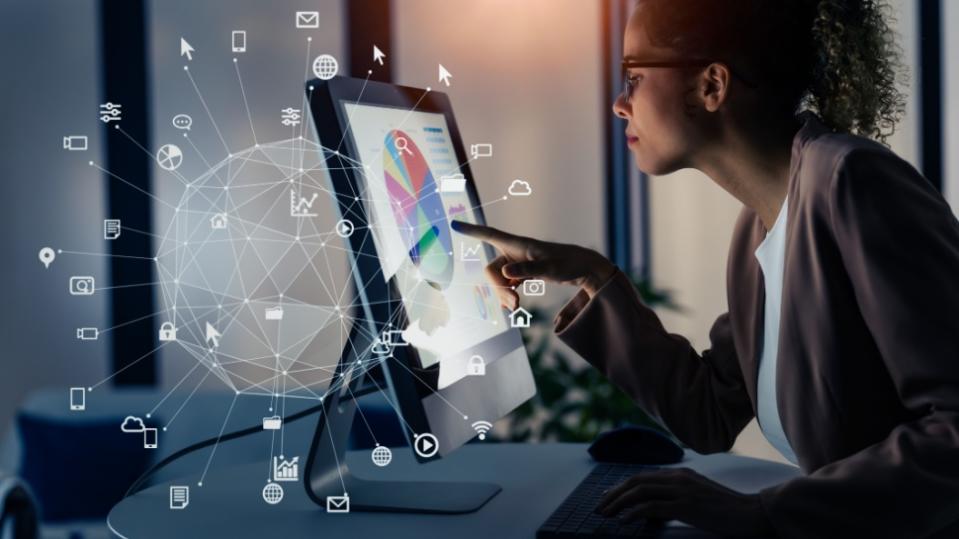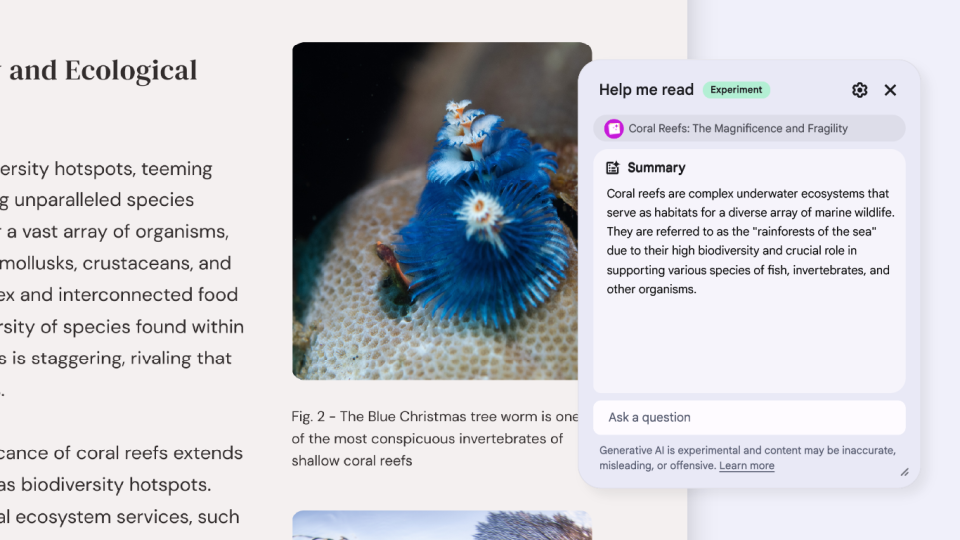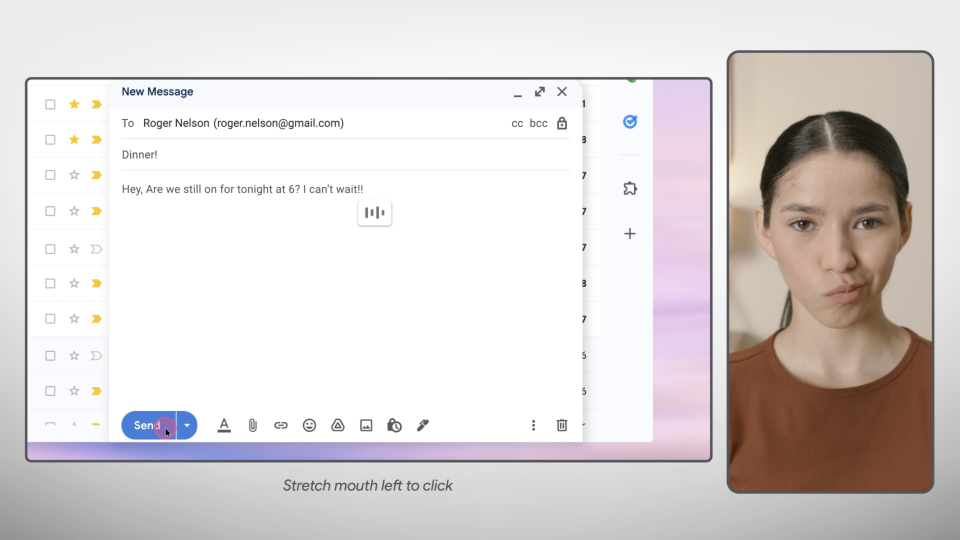Take note Microsoft – Google's Chromebook shows how AI in PCs should be done

Google hosted its yearly Chromebook event, which tends to fall around the same time as one of the biggest tech events of the year – Computex. This year was no exception, with the tech giant revealing its plans for AI integration into its line of Chromebook Plus laptops just as Microsoft and other popular manufacturers announced a deluge of their AI-powered laptops, most of them arriving during Computex 2024.
While this is certainly an interesting time, as we’re about to see just how far AI-powered components and tools will take us, it also feels like we’ll be getting more of the same, unless you include Chromebooks in the mix. Then you truly have something worth talking about.

What’s wrong with AI PCs?
While the prospect of new technologies is always exciting, they can have some downsides. The AI hardware itself, especially when running out of large data centers needed to power both generative AI and the cloud storage it often relies on, has already been eating through massive amounts of water and other resources, and the environmental impact will only continue to worsen as tech giants like Nvidia, Intel, Apple, AMD, Qualcomm, and more create more powerful AI-based CPUs and especially GPUs.
Then there’s Microsoft, whose push for AI tools in Windows 11 may result in one of the biggest ecological disasters, as millions of users are forced to abandon millions of Windows 10 laptops that aren’t compatible with the new OS and its features. This is supported by a UN report stating that e-waste is being created faster than we can recycle, and even Microsoft itself acknowledges that the push for AI PCs and tools is causing an increase in carbon emissions.
The last issue is with both pricing and accessibility, which nearly every manufacturer and tech company is complicit in. AI PCs are always above $1,000; effectively pricing out a sizable portion of buyers looking for an affordable laptop. As for accessibility features, they’re either sparse and redundant (looking at you Microsoft’s AI-generated auto-captioning) or non-existent.

What are Google and its Chromebooks doing right with AI?
The irony of my assertion that Google is doing anything right in terms of AI is that it’s currently suffering from a sizeable self-inflicted wound to its search engine — AI Overviews. On the other hand, the Chromebook side of the tech giant has been making strides in making AI more accessible to the masses.
I watched several demonstrations of Google’s new AI tools including Help Me Read & Write, Help Me Game, Help Me Hands-Free, and Help Me Create. Seeing such a wide breadth of software and features that cover so many facets of the average user experience did wonders to support Google’s oft-repeated mantra that AI should be helpful, integrated within the entire UI, and based in the cloud and on the device.
Help Me Hands-Free, and tools like live transcription and live translation, are particularly impressive as they massively increase the accessible options for users. Though Help Me Hands-Free is currently in beta testing, you can operate your entire UI through hand gestures and voice commands. Live transcription and live translation are also incredible tools that make videos more accessible.
Then there’s the pricing, where Chromebooks have every other laptop beat. The most expensive options are still under $1,000, with specs and displays perfect for productivity work and even some gaming. Chrome OS isn’t perfect but the available apps are ever-growing and, coupled with its increasing roaster of AI tools, are helping make it more popular.

While there’s still room to grow in this regard, the fact that Google is attempting to mitigate the immense resource cost of AI by allowing for both local and cloud storage is encouraging.
AI needs access to cloud storage to keep its data pool fresh (though that comes with its own moral implications of what constitutes intellectual property theft). But if you can cut how much access to the cloud – and therefore access to data centers and the resources they consume – you can mitigate some of AI's negative environmental impact. I'm not sure I see the same level of eco-friendly AI commitment from other tech giants.
Google's Chrome hardware is also relatively free from concerns about wholesale, unsupportable OS upgrades that could lead to more waste.

What I’d like to see in the future
My number one concern for AI continues to be its ecological impact. And therefore, I want to see Google take a much more proactive and aggressive approach to how it mitigates the sheer amount of resources it uses. If there’s any corporation that can figure out how to make AI completely local to reduce that burden, Google is it with the capital and staff to make it happen. Like other tech corporations, it has the responsibility to do so.
Another improvement is to make Chromebooks even more affordable. There are plenty of models that retain their cheap cost, however, the most expensive models keep climbing in price. One of the biggest advantages of the Chromebook is its retail price compared to other laptops, but it seems that every year that gap narrows. Considering that Chrome OS is still quite limited, it approaching the cost of a Windows laptop is unacceptable.
That said, Google has made the most progress in making its AI technology more equitable, as it’s been thoroughly integrating numerous tools and features into its very UI. Tools that serve the user rather than check off an arbitrary box in a list that’s only meant to impress but not truly help. Other tech giants should follow suit if they don’t want their more premium options to be left behind as Chromebook continues to loom over them.


